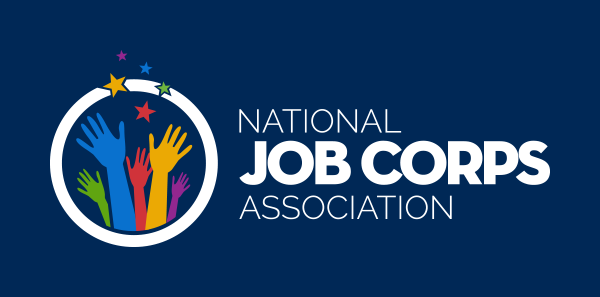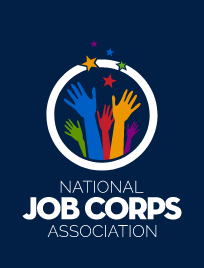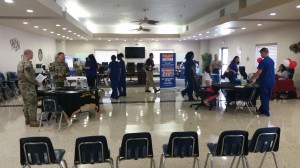Phoenix Job Corps hosted another successful job fair for students with some top employers on hand.
UPS
Sarah Dalley from UPS (United Parcel Service) says they’re looking for part-time package handlers.
“It’s kind of a physical job,” explained Dalley. “It’s in a warehouse setting. You kind of get paid to do a work-out. We like to joke about that. It’s a good job to have for students because they can still go to school and we’re only asking part-time hours. So, employees generally work about 3-5 hours a day. We have shifts that are Monday through Friday, Tuesday through Saturday and Sunday through Thursday.”
Starting pay for package handlers at UPS is $14 an hour. After a year, UPS offer part-time employees full benefits including vision, dental and medical. Anyone working the midnight shift, 10 p.m.-3:30 a.m. gets offered tuition reimbursement.
“We like to promote within our company,” said Dalley. “We have driver opportunities, management opportunities. We have different departments like industrial engineering. We have plant engineering…We have our tech support, we have human resources, we have a lot of other departments within us so it’s just not loading and unloading and driving.”
UPS is also going to have a lot of seasonal jobs coming up during the holidays. It could be a great opportunity if you’re looking for extra cash.
“It’s a pretty quick hiring process,” said Dalley. They do a tour and interview at our facility.
As far as interview questions students should be prepared for, Dalley said, “We don’t ask a lot of scary questions. We’ll ask why UPS? What are you looking for? Can you give us a one year commitment which is our biggest one.” The exception being seasonal work.
CARING HEART OF ARIZONA
Caring Heart of Arizona is looking for caregivers to provide in-home care to disabled children throughout Maricopa County. They’re looking for employees who can help with hygiene, homemaking and meal preparation.
“One of the most exciting is habilitation which is where you work with them to teach them something such as a life skill that we take for granted like how to brush their teeth, or how to use a zipper or how to use a laundry basket,” says recruiter Wendy Fitzpatrick.
“We provide all of the training and the certification they need. We just ask they have a fingerprint clearance card.”
She says it’s a great job for students because the hours are before/after school and include a lot of weekends. Employees can work two hours a week up to 60 hours a week.
Students don’t have to provide transportation, only if they want to.
The organization is looking for a 6-month commitment since Fitzpatrick says it’s disruptive to change caregivers. She says a lot of their providers have been with the center 13 years.
“it’s really great,” says Fitzpatrick. “It’s a way to give back to the community. It’s a way to enrich your life.”
The pay depends on the services provided. Some start at $11 an hour but the hourly rate can go up to $21.50.
Fitzpatrick has this advise for students applying with her organization.
“Dress to impress and act like you’re going on a date,” says Fitzpatrick. “Present yourself well because you’re going to have to do that everyday with the families. You don’t necessarily have to be dressed up or anything like that but just be clean and professional.”
The main requirement is to have a caring heart. “That’s where we got our name,” says Fitzpatrick. “A lot of people with special needs are very kind and compassionate and sometimes you’re just going to get paid to sit there and play video games with someone.”
ARIZONA DEPARTMENT OF CORRECTIONS
Correctional Sgt. Guillermo Avilla is from the AZ Department of Corrections.
“We are looking for somebody positive, somebody who can be fair, consistent, somebody who can meet minimum qualifications,” says Avilla.
He says they’re looking for employees with good reading and writing skills and who have a good memory. Prior experience is not a requirement since new hires get sent to an academy.
Some typical questions students can expect to be asked include, “What caught your attention? What brought you to me? What do you see about corrections that interests you?” says Avilla.
He recommends students do a little research before coming to an interview and be prepared to ask questions.
“Don’t be afraid to ask questions,” says Avilla. “We love to talk. Communication is key.”
By Melody Birkett, BCL


 JOB CORPS
JOB CORPS 